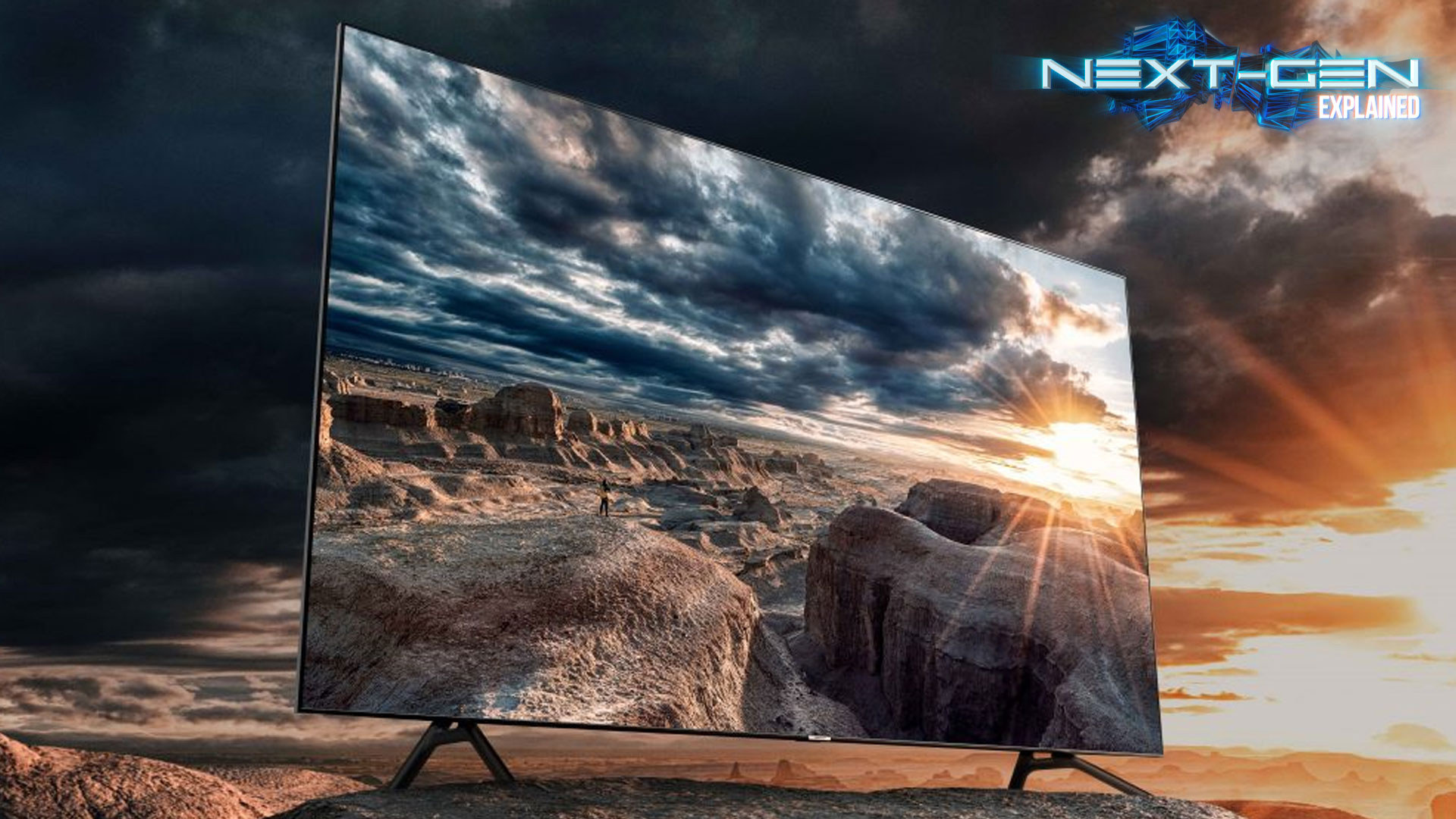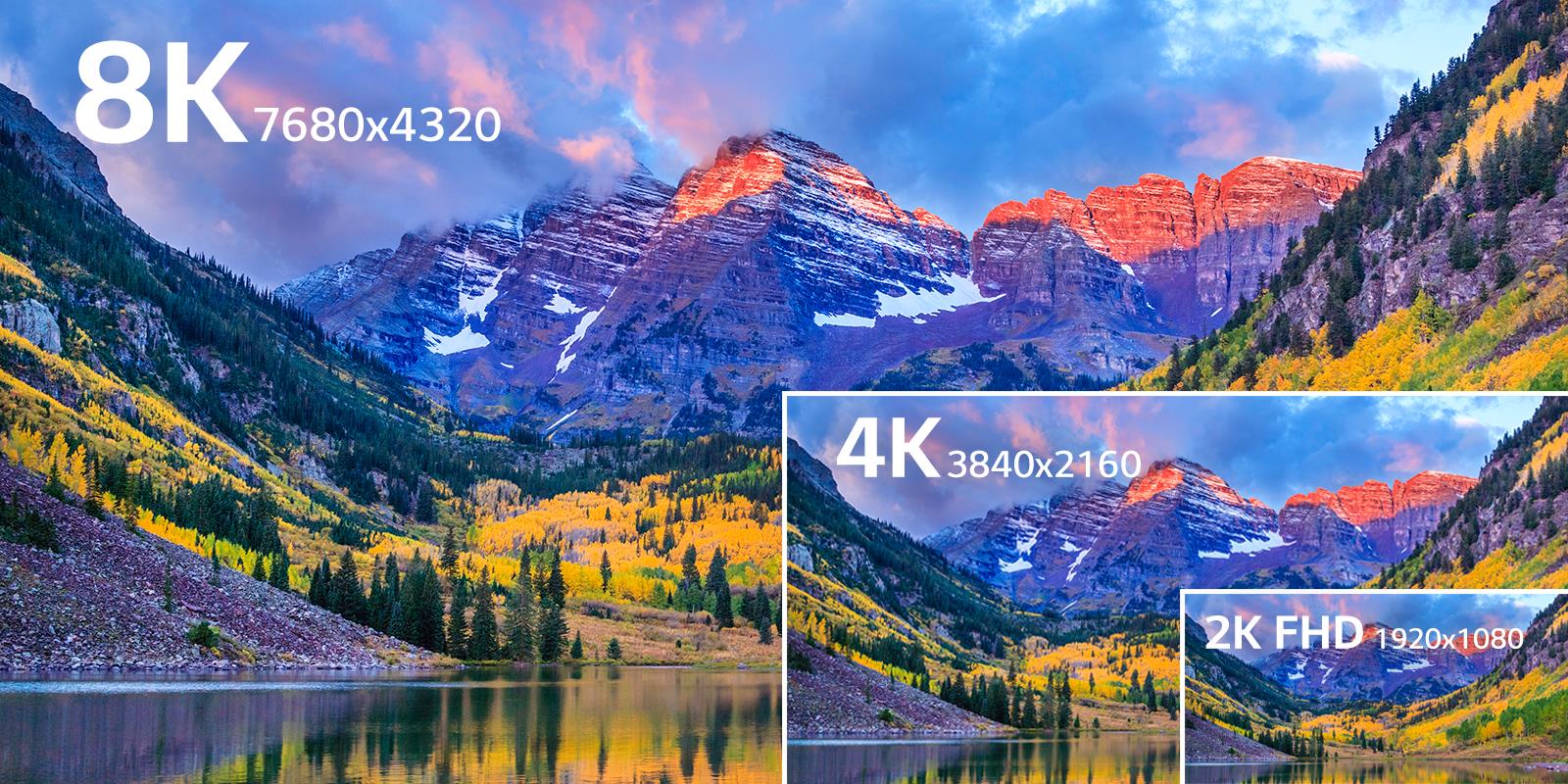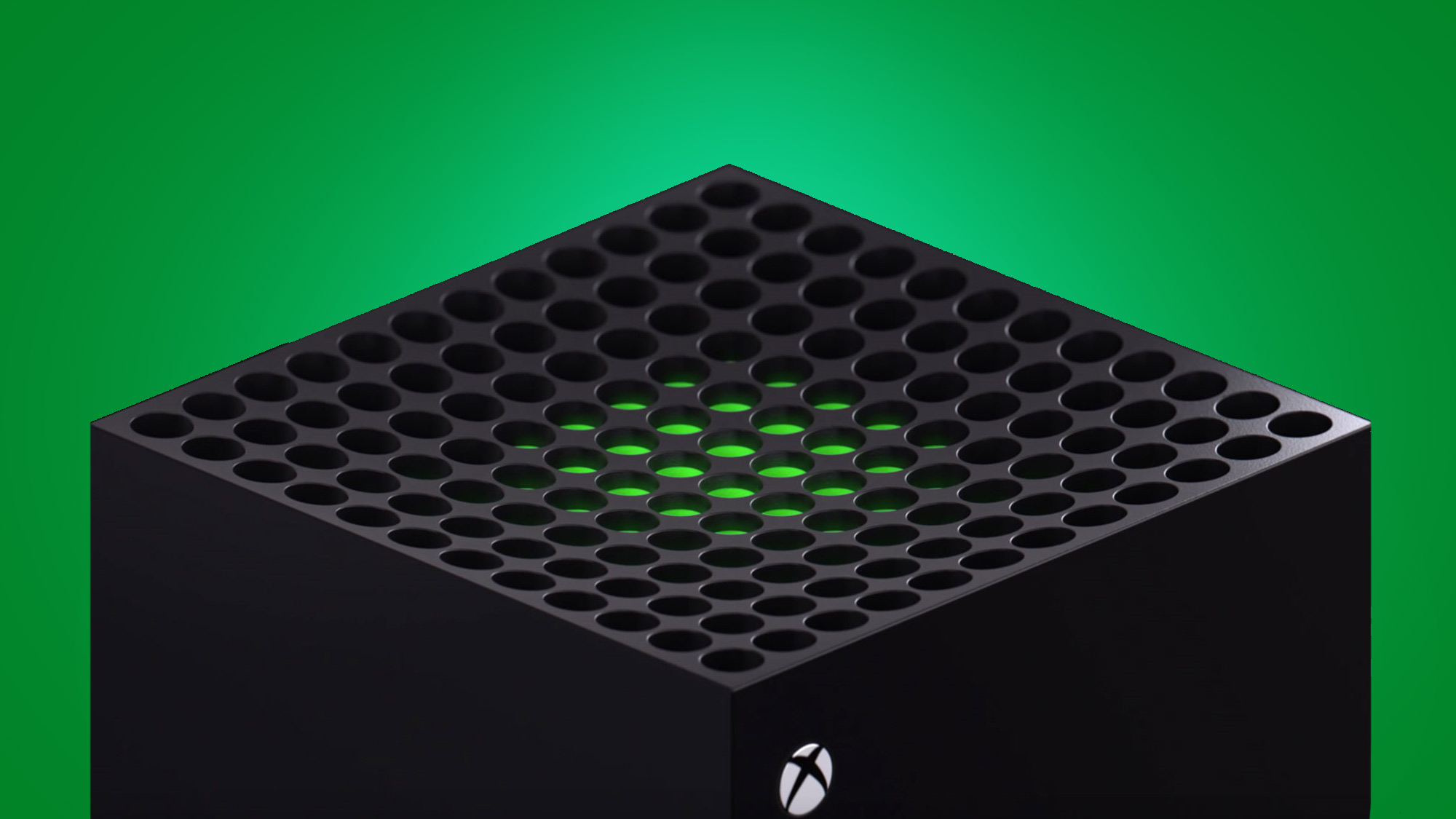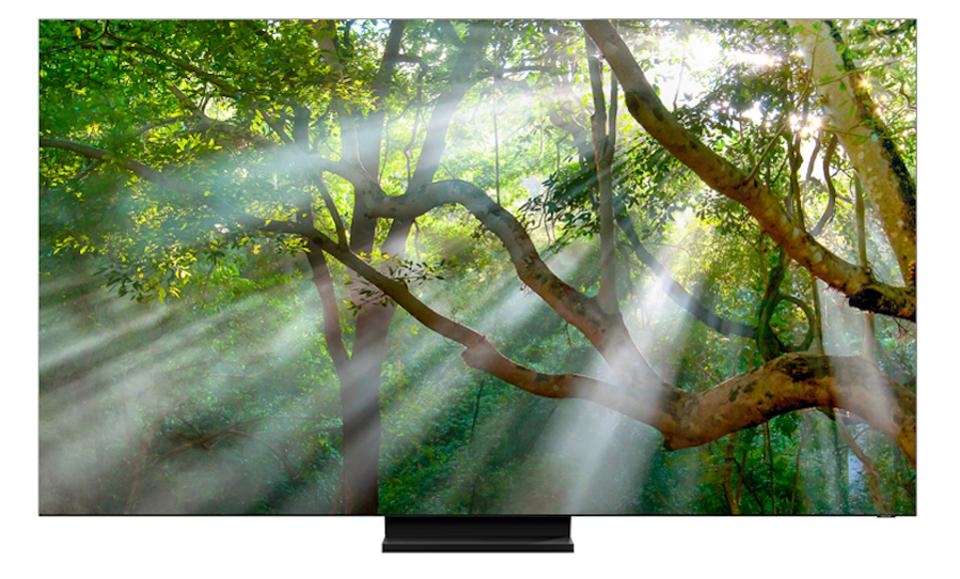8K Resolution – What is it and do I need to buy an 8K TV now?
8K TVs are gradually becoming more affordable, but do you really need one to get the most out of PS5 and Xbox Series X?

8K TVs are finally starting to become an actual thing, but the TL;DR version of should you buy one now is: “No, you don’t need to”. Have you recently bought a 4K TV? Congrats! You have exactly the right television for PS5 / Xbox Series X. 4K (3840 x 2160p) is still the gold standard, and whether you can’t wait to shiv your way through The Last of Us 2 or blast Grunts in Halo Infinite, your current 2160p display is going to do you proud.
BUT… 8K TVs are becoming (a bit) more affordable, and thus, more relevant to gamers. Kind of. 8K is definitely the future, it’s just not here yet. While we’re likely still years away from 8K TVs becoming readily affordable, Samsung, Sony and LG all now have ultra, Ultra HD skin in the game. That said, there’s almost zero native 8K video content out there, so early adopters are buying into an insanely sharp future that doesn’t really exist at the moment.
If you want to future-proof your next-gen gaming to an insane degree, Samsung currently offers the most ‘competitively’ priced 8K displays, but before we give you a rundown of what TV your inner AV obsessive should be considering, let’s go through some 8K basics, shall we?
What does 8K really mean?

In layman’s terms, 8K delivers quadruple the pixels of 4K, not double. Confusing, right? Said number is derived by multiplying a TV’s horizontal resolution by its vertical one. In semi-terrifying tech terms, 4K = 3840x2160 (or 2160p), while 8K = 7680x4320 (or 4320p). To put those somewhat baffling numbers into context, a ‘standard’ HD TV weighs in at 1080p (or 1920x1080p).
Astonishingly, 8K has been a reality since the mid-90s. Japanese broadcaster NHK was the first company to take an interest in the eye-arousing format all the way back in 1995, and for the last several years 8K cameras have been readily available in the photo-snapping world. By contrast, the TV market is way behind. It’s only now, in early 2020, that 8K TVs are even close to being affordable.
When you consider an 8K display delivers a frankly ludicrous 33 million pixels, you begin to understand why the format isn’t exactly wallet-friendly. 8K is also tied to HDMI 2.1 – cutting edge cable tech that supports not only 8K, but 120Hz to boot. “What the hell is Hz?!”, you ask? In broad terms, it stands for hertz: a cycle per second frequency that’s tied to frame rate. Microsoft has confirmed Xbox Series X supports 120Hz, and with current OLED TVs already supporting this refresh rate, next-gen games won’t only be sharper, they’ll be smoother to play to boot.
Do I need to buy an 8K TV yet?

While Xbox Series X specs are locked and we have a good idea of PS5 specs, the idea of either next-gen console packing in enough graphical grunt to support 120fps at 4K (let alone 8K) is a huge ask. Developers certainly have the option of adding optional, high fps ‘performance’ modes – see the likes of Shadow of the Tomb Raider – yet resolution compromises will likely be needed to get next-gen games running at the kind of super speedy frame rates HDMI 2.1 can support. If 8K gaming is going to become a reality on next-gen consoles, and that’s a big ‘if’, it will be at 30fps.
Sign up to the GamesRadar+ Newsletter
Weekly digests, tales from the communities you love, and more
Even that seems unlikely. When you consider the already powerful Xbox One X is limited to running the vast majority of X Enhanced games at 4K/30fps – with the exception of a handful of sports titles like FIFA 20 that manage to play in Ultra HD at 60fps – expecting Xbox Series X and PS5 to run games at twice the resolution at playable frame rates is a massive leap. Microsoft’s hugely beefy new console may have twice the teraflops of its predecessor, but 8K gaming may well be a step too far even for its advanced AMD Navi graphics tech.
Looking at PC hardware, even the best graphics card for gaming in 2020, Nvidia’s RTX 2080 Ti, can struggle to run modern games at 4K/60fps. Though 8K PC monitors do exist, like the Dell UP3218K, they’re not really designed for gaming, mainly because even the most bleeding-edge graphics cards just aren’t equipped to run titles at resolutions above 4K. When a GPU that costs the thick end of $1000/£1000 can’t quite run Red Dead Redemption 2 at 60fps in Ultra HD, asking next-gen consoles – which will likely cost half that figure – to play games at 8K at anything approaching a playable frame rate is probably demanding way too much.
While Microsoft recently showed off an Xbox Series X CPU with an 8K logo etched into the chip, even those hulking 12 teraflops are unlikely to produce 8K results. Will Series X’s dashboard be compatible with 8K? That seems like a reasonable ask when you consider even Xbox One S can run its dashboard in 4K – and don’t forget, Mircosoft’s base console is eight times less powerful than Series X. Playable 8K games, though? We’d wouldn’t place even the teeniest of bets on it.
Can I even buy an 8K TV yet?

If you’re the sort of person who absolutely has to own the best gadgets going, the Samsung Q950R is one of the few 8K TVs on the market you can buy for less than $5000/£5000. It’s an astonishing set that does a great job of upscaling 1080p and 4K pictures. Just bear in mind that if you really have your heart set on buying an 8K TV, 65-inches is the absolutely ‘smallest’ screen size you should be considering. Such is the level of pixel density on display, all that sharpness and incredibly fidelity is going to be lost on a 55-inch set.
Over the coming years Amazon Prime, Disney Plus+ and Netflix may all roll out 8K content, but right now, the only country that broadcasts dedicated 8K video is Japan – there are even plans to show the Tokyo 2020 Olympics in 8K. Providing PS5 and Xbox Series X get 8K streaming apps, perhaps future you will get to enjoy Sex Education season 6 in eye-arousing 4320p.
In the here and now though, a 4K TV is more than good enough to get the most out of PS5 and Xbox Series X, not to mention current-gen consoles.
For more details on all the next-gen jargon, check out more of our next-gen explainers.



